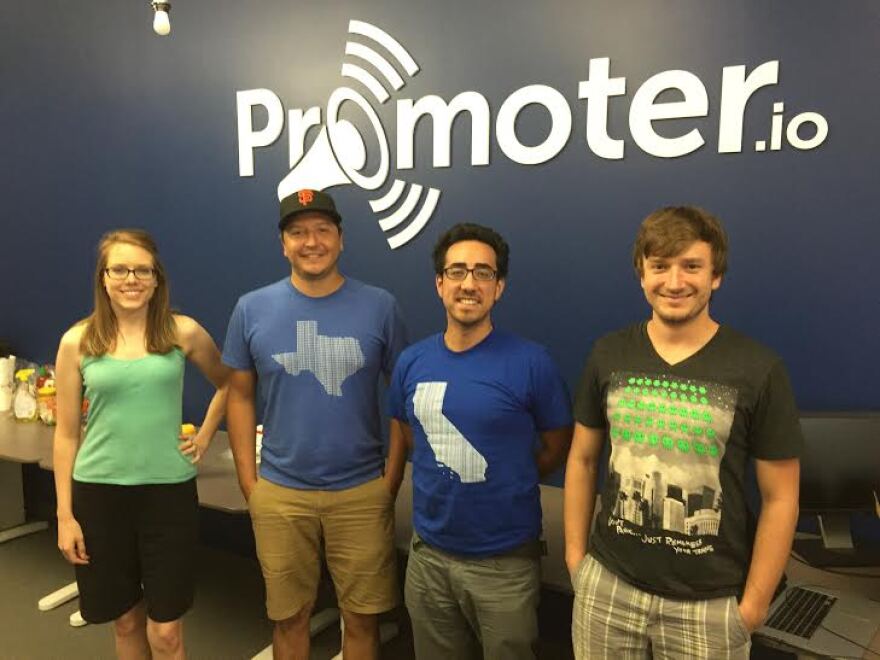San Antonio is on the short list to become a Google Fiber city. What would it mean to businesses and residents if Google expands high-speed Internet access in the city? Tech experts are hopeful for a more digitally connected landscape.
On the sixth and seventh floors of the Rand Building on Houston Street is Geekdom. It’s a collection of independent start-up technology companies that depend heavily on the Internet. One of those companies is Promoter IO. It’s a web application business that allows clients to gauge customer feedback.
“What we do is we allow businesses to measure their customer loyalty and predict future churn,” said Ricardo Reyna, a cofounder and Chief Technology Officer of Promoter.
Google Fiber would allow users to download a gigabit of data per second and that would help him attract talented tech employees. “What I mean by that is Silicon Valley in San Francisco specifically is losing its competitive edge because of the fact that it’s becoming a lot more expensive to live there,” Reyna added. “A lot of companies, like ours that’s only two years old, have chosen to found and develop our early start-ups in different cities like San Antonio, Kansas City, and Austin.”
Reyna sees the system as the latest infrastructure that could transform the city. “Gigabit connections should be seen more as an infrastructure play than anything else. In the1920’s, cities were planning their grids trying to get the best electricity, we should see it as the same way.”
Fiber is similar to cable Internet except its method of transmitting data works much faster. Ray Lopez is a professor in UTSA’s Department of Psychology and has also worked for IBM. He said fiber in San Antonio would drive competition.
“This is going to force the Time Warners of the world the Comcasts of the world to up their game, that’s already happening in San Antonio,” Lopez said. “Time Warner has already starting giving their customers increased speeds, so now Time Warner said if you upgrade your modem, you can get 300 megabit speeds.”
That’s about one-third of the maximum speed you’d get with a fiber connection. Lopez also said it would bridge the digital divide by making Internet access more affordable to low income communities.
Kansas City was the first city selected to receive Fiber in 2011. Austin was selected two years later. San Antonio missed out on a recent round of city selections, but it’s still in the running.
The Alamo City’s tech community has banded together to form a non-profit called TechBloc. Its goal is to be the industry’s voice on policy decisions. Marina Gavito is the executive director. “We have a lot a lot of things going for our tech scene here and [Google Fiber] would just be icing on the cake.”
However, even if San Antonio is selected soon, homes and businesses won’t be connected immediately.
“One of the things [Google] is struggling with in their implementation in Austin and Kansas [ is timeliness]. What had ended up happening was they made a huge hoopla announcement to say ‘Hey, Google Fiber is here’ but it took about three years before the first customer got served with Google Fiber,” Cavito said. “So they said that San Antonio has been a great city to work with, so thumbs-up there. But that they don’t want to make that mistake in San Antonio. They want to shorten that window that when the make the announcement that maybe it’s only a year later that the first customer is served.”
Even so, you’ve gotta start somewhere. And here’s a first sign something may be happening. Google has posted ads for three fiber-related jobs in San Antonio in the last two months.
If the company chooses San Antonio it would be the largest city yet have the high speed system installed. The city already has hundreds of miles of what’s called dark, or unused, fiber that was laid in the early 2000s by CPS Energy.
Some experts believe access to that may help boost the Alamo City’s fortunes.



